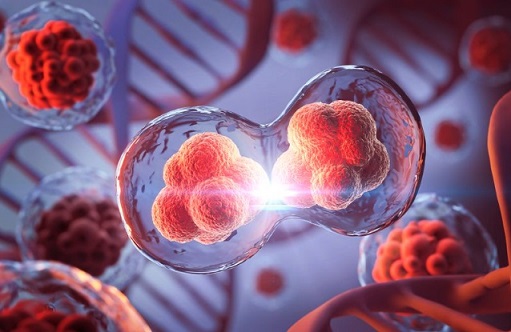Nikhil Prasad Fact checked by:Thailand Medical News Team Feb 19, 2025 1 month, 3 weeks, 1 day, 10 minutes ago
Medical News: Breast cancer is one of the most common cancers affecting women worldwide. While many patients respond well to early treatments, a significant number develop advanced-stage cancer that spreads to other organs, including the brain. When cancer cells from the breast travel to the brain, it is called breast cancer brain metastasis (BCBM). This condition drastically lowers survival rates and makes treatment more challenging due to the protective barrier surrounding the brain known as the blood-brain barrier (BBB).
 New Hope for Breast Cancer Patients with Brain Metastases
New Hope for Breast Cancer Patients with Brain Metastases
Over the years, researchers from Tongji Hospital, Tongji Medical College, Huazhong University of Science and Technology, Wuhan, China have been exploring new ways to fight BCBM by developing drugs that can effectively cross the BBB and target cancer cells within the brain. This
Medical News report discusses their latest findings on promising drug therapies.
Targeting the Molecular Mechanisms of Brain Metastases
One of the most significant breakthroughs in cancer treatment involves targeting the molecular mechanisms that allow cancer to spread. Scientists have found that specific genes and signaling pathways, such as HER2, WNT, NOTCH, and CDK4/6, play crucial roles in the growth and spread of breast cancer cells to the brain.
-HER2-targeted therapies: The HER2 protein, which is overexpressed in certain breast cancer cells, is a key factor in brain metastases. Drugs such as trastuzumab, pertuzumab, and tucatinib have been developed to specifically target HER2-positive tumors. Clinical trials have shown that combining these drugs with chemotherapy significantly improves survival rates.
-WNT and NOTCH pathway inhibitors: These pathways help cancer cells survive and spread in the brain. Researchers are testing new drugs like LGK974, a WNT inhibitor, and NOTCH-targeting treatments, which have shown potential in early laboratory studies. These drugs are still being investigated for their effectiveness in humans.
-CDK4/6 inhibitors: These drugs, including abemaciclib, work by stopping cancer cells from growing and dividing. Studies have shown that they can cross the BBB and reduce the growth of brain tumors in patients with hormone receptor-positive breast cancer.
Overcoming the Blood-Brain Barrier
One of the biggest challenges in treating BCBM is getting drugs past the BBB, which protects the brain from harmful substances but also limits the effectiveness of many cancer treatments. Researchers are now using innovative approaches to bypass this barrier:
-Receptor-mediated drug delivery: Scientists have found that certain proteins, such as LRP-1, can help transport drugs across the BBB. ANG1005, a drug that utilizes this mechanism, has shown promising results in clinical trials.
-Nanotechnology: Researchers are developing tiny particles that can c
arry cancer-fighting drugs directly to the brain. These nanoparticles improve drug absorption and effectiveness, making treatment more precise and less toxic to healthy cells.
-Efflux pump inhibitors: The BBB contains special pumps that push drugs out of the brain, reducing their effectiveness. New treatments, such as encequidar, are being developed to block these pumps, allowing higher concentrations of cancer drugs to stay in the brain.
Future Directions and Hope for Patients
The fight against breast cancer brain metastases is entering a new era with the development of more advanced drug therapies. Researchers are optimistic that continued advancements in molecular targeting, drug delivery methods, and combination therapies will significantly improve survival rates and quality of life for patients.
However, challenges remain. While some of these drugs have been approved for use, many are still undergoing clinical trials. Scientists emphasize the need for further research to optimize treatment strategies and minimize side effects. Additionally, combining multiple treatment approaches, such as surgery, radiation, and targeted drugs, may provide the best outcomes for patients.
Conclusion
The research conducted by scientists at Tongji Hospital, Tongji Medical College, Huazhong University of Science and Technology highlights the urgent need for more effective treatments for breast cancer brain metastases. New drug therapies offer hope for patients, potentially transforming the way this aggressive condition is managed in the future. As medical science continues to advance, patients diagnosed with BCBM can look forward to more personalized and effective treatment options.
The study findings were published in the peer-reviewed journal: Pharmaceuticals.
https://www.mdpi.com/1424-8247/18/2/262
For the latest Breast Cancer News, keep on logging to Thailand
Medical News.
Read Also:
https://www.thailandmedical.news/news/adiponectin-role-in-breast-cancer-stem-cells-and-hormone-therapy-resistance
https://www.thailandmedical.news/news/human-cytomegalovirus-infection-and-breast-cancer-risk
https://www.thailandmedical.news/news/thailand-doctors-find-that-breast-conserving-therapy-offers-long-term-survival-for-early-stage-breast-cancer-patients
https://www.thailandmedical.news/pages/thailand_doctors_listings
